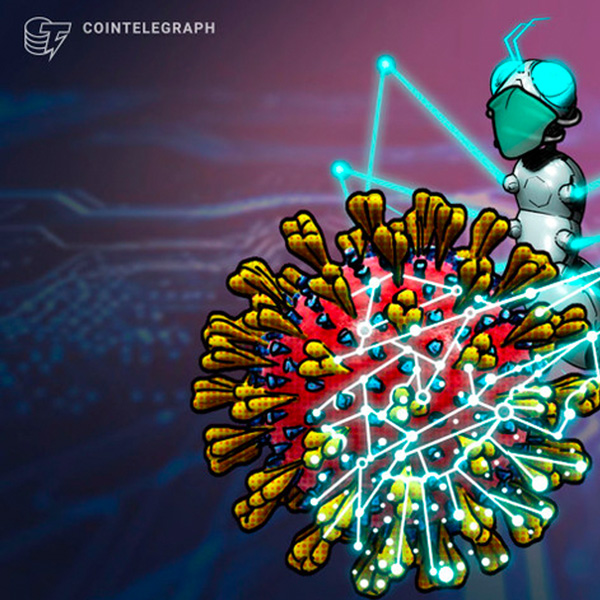Block.one, the company behind EOSIO (EOS), issued a $50,000 grant to GenoBank.io for its open-source app on April 29. The grant is designed to facilitate anonymous access to COVID-19 testing.
GenoBank.io announced at the start of April that its app, Agerona, was being developed alongside the Eos-based blockchain platform, Telos.
Block.one issued the grant in partnership with its venture capital wing, EOS VC, and German fintech incubator, FinLab EOS VC.
Block.one invests in Eos-based COVID-19 testing app
Agerona connects users anonymously with test suppliers in their country. Tests contain unique barcodes that create a free and anonymous account on the Telos blockchain for the user. Kits are then sent to a verified lab for processing — with results anonymously uploaded to the blockchain.
The system allows for test results to then be analyzed by health researchers, without being tied to the identity of the individuals tested.
GenoBank.io CEO Daniel Uribe stated: “[W]e are grateful to have the backing and support of Block.one’s venture arm EOS VC in aiding our efforts to anonymize DNA/RNA test kits (including coronavirus) while empowering patients and users to decide if they want their anonymized data to be available to the scientific community and help control the spread of the coronavirus and potentially contribute to a treatment.”
Block.one chief executive Brendan Blumer stated: “We’ve witnessed the growth of an open-source community whose passion and innovation have helped to identify and solve critical business problems in sectors ranging from art to wellness.”
Block.one invests in several firms fighting coronavirus
Block.one has funded several companies that are working on solutions to problems relating to COVID-19. The company has accomplished this through its partnership with the EOS VC Grants program, and its partnership with FinLab EOS VC.
The recipients include health and wellness platform, PUML Better Health, the job-listing platform, Moonlighting, and the AI service, Innoplexus.
“With the onset of urgent world issues caused by the coronavirus, it is important that we empower and support the ways that blockchain technology is being applied to provide solutions,” stated Blumer.
Use-cases for blockchain highlighted amid coronavirus pandemic
Many of the benefits of distributed ledger technology, or DLT, have been showcased by recent initiatives responding to COVID-19.
On April 29, the United Kingdom’s Open University began testing a blockchain-based proof-of-immunity app for COVID-19. The prototype seeks to protect privacy while providing tamper-resistant test results to verify immunity.
On April 26, Cointelegraph reported that New York’s largest hospital network had joined IBM’s Rapid Supplier Connect network — a blockchain-based network for verifying suppliers of COVID-19 relief goods, and connecting suppliers with purchasers.
During April, ConsenSys developers working on Baseline Protocol have suggested a system for coronavirus contact tracing. They aim to address potential privacy, record-falsification, and data centralization risks identified in proposals from Apple and Google.
